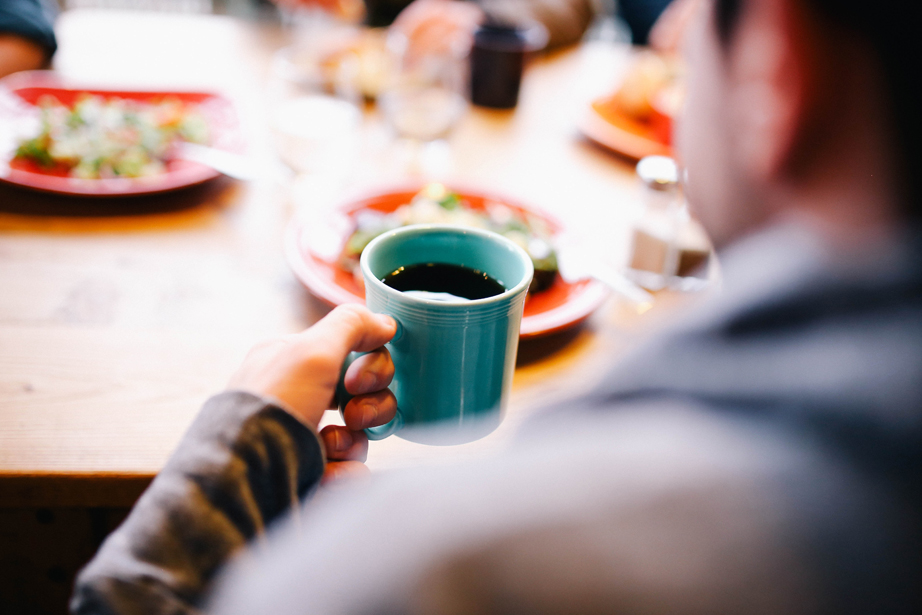Why it’s important to have a coffee moment.
When was the last time you noticed your cup of coffee? No, I mean really noticed how it felt in your mouth, its wonderful aroma, the delicious taste, and were you aware of the cup or mug in your hand with its warm and comforting shape.
Going with the flow.
One of the things I look forward to on holiday in Lanzarote is taking time to wander into a coffee shop and drink a cup of coffee slowly, watching the world go by. People hang out in cafes early in the morning before work, at lunch time and after work, relaxing and enjoying each others company. It’s the simple things in life, like taking time to savour a cup of coffee that make us most happy.
A little meditative pause in your hectic work schedule to take a breather and clear the mental fog, can have positive restorative power and have profound effects on your wellbeing for the rest of the day. Being aware of the present moment, having more focus and concentration is often associated with the practice of meditation, but it doesn’t mean sitting on a cushion crossed legged for hours. Being aware allows you to centre your attention to be more mindful of the present moment. Take a moment to listen to Mindfulness expert Andy Puddicombe as he describes the transformative powers of mindfulness:
http://www.ted.com/talks/andy_puddicombe_all_it_takes_is_10_mindful_minutes
The practice of mindfulness is fast becoming mainstream. Companies like Google are now offering mindfulness courses for their employees, and for good reason: research shows that practised regularly, mindfulness can improve concentration, memory, reduce stress and give your mood a boost. Research by Harvard University shows we spend 47% of the time lost in our thoughts and potentially unhappy. We are distracted and overwhelmed by emotions. We walk fast, eat fast, talk fast, text fast, rush from one project to another, feeling agitated and restless. Eventually we feel stressed out, tired and become prone to ‘worry worms’ in our heads. Instead of taking time to do absolutely nothing for a few minutes we punish our bodies at the Gym thinking this will help us wind-down and relax after work. Instead it further agitates our nervous system, and in the long term this can affect our immune system in a negative way, making us more prone to illness. We try to distract ourselves from worry by watchingTV or spending hours on the computer. Pausing for a moment can help us re-connect and notice how we are feeling. We may become aware that we are breathing shallowly, our shoulders are high up around our ears, our neck aches and we feel uptight. We need to slow down and centre ourselves and allow our nervous system to re-balance itself.
The interest from organisations to foster mindful leadership practices has mushroomed over the past few years. It allows for a more grounded and authentic environment in which to foster professional and personal success resulting in a more healthy workplace environment. A workforce with an ability to practice awareness, focus and concentration leads to better leaders, fosters creativity, and helps employees to cope with challenge and change in the workplace.
Meditation is about allowing thoughts to come and go: not to stop the thought but to acknowledge it without judgement. The most quoted definition of Mindfulness is that of Jon Kabat-Zinn.To him, being mindful means “paying attention in a particular way: on purpose, in the present moment, and non-judgmentally” (Kabat-Zinn, J (1994). You can practice throughout the day, and in fact the Dalai Lama suggests, “you must have practices that you engage in every day”.
So a mindful cup of coffee is a good place to start your practice. Here’s how:
Take a walk to your local coffee shop, or if it’s raining sit comfortably at your desk, take a deep breath in and savour the aroma of your coffee and as you breathe out, relax your shoulders. Focus on your breath and gaze softly into your mug of coffee, notice its colour and the slight steam rising. As you inhale and exhale be aware of your thoughts, allowing them to float in and float out again. Acknowledge them in a non-judgemental way, returning to notice your breath as it will help you anchor your busy mind. As you breathe, gently feel how your feet are connected to the floor, like the roots of an oak tree, and relax your ankles and legs. Notice how your spine feels, allow your buttocks to relax, sit up on your sit-bones and grow taller with every inhale. Relax your shoulders and hold your mug softly in your hands. Begin to feel a sense of oneness as you relax. At this moment in time you have nowhere to be and nothing to do, except to enjoy this moment. Yesterday, was yesterday, be present today, in the here and now, resisting the temptation to project into the future.
To explore further, read (Kabat-Zinn, J (1994) Wherever you go, There you are: Mindfulness meditation for everyday life, Piatkus, London.


